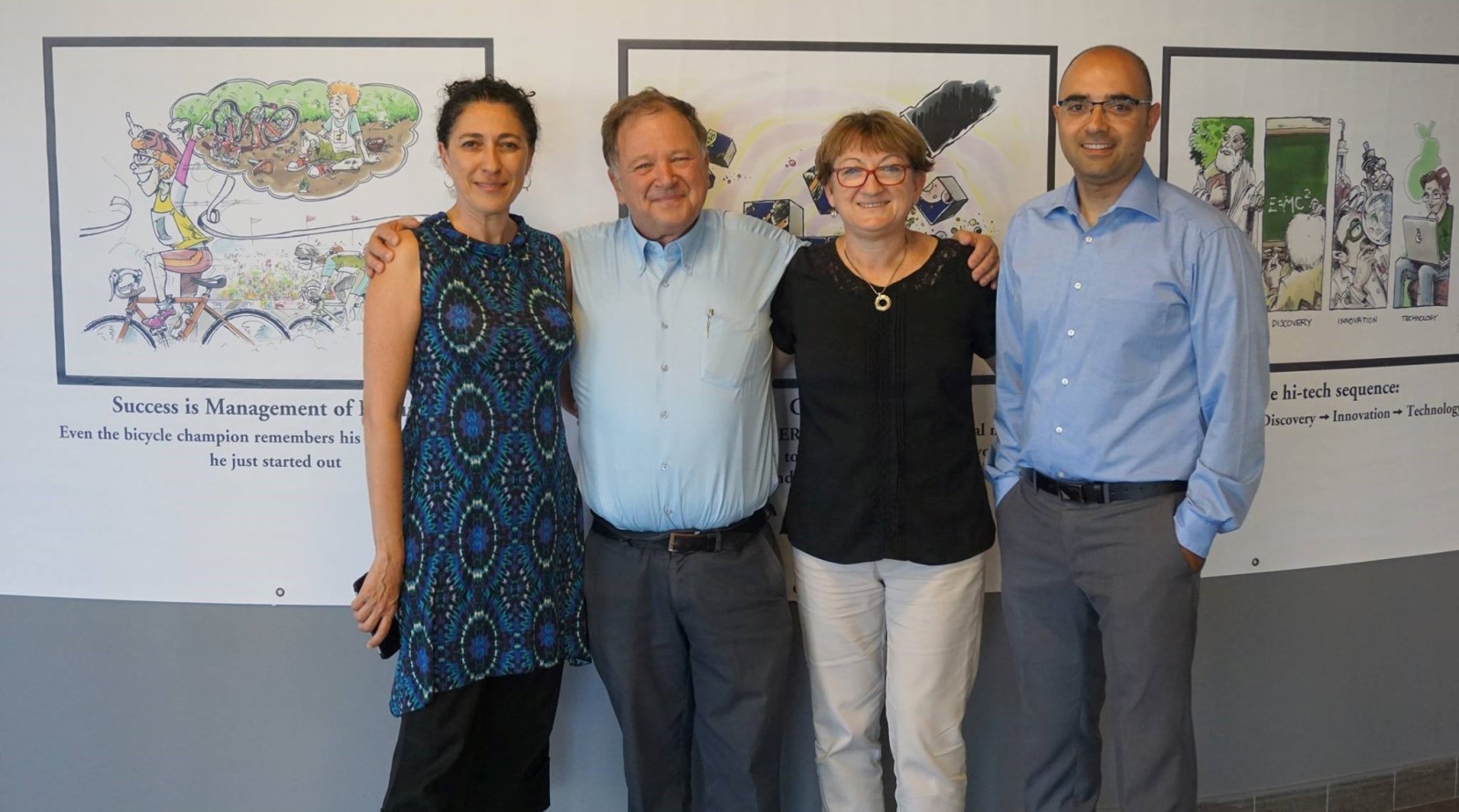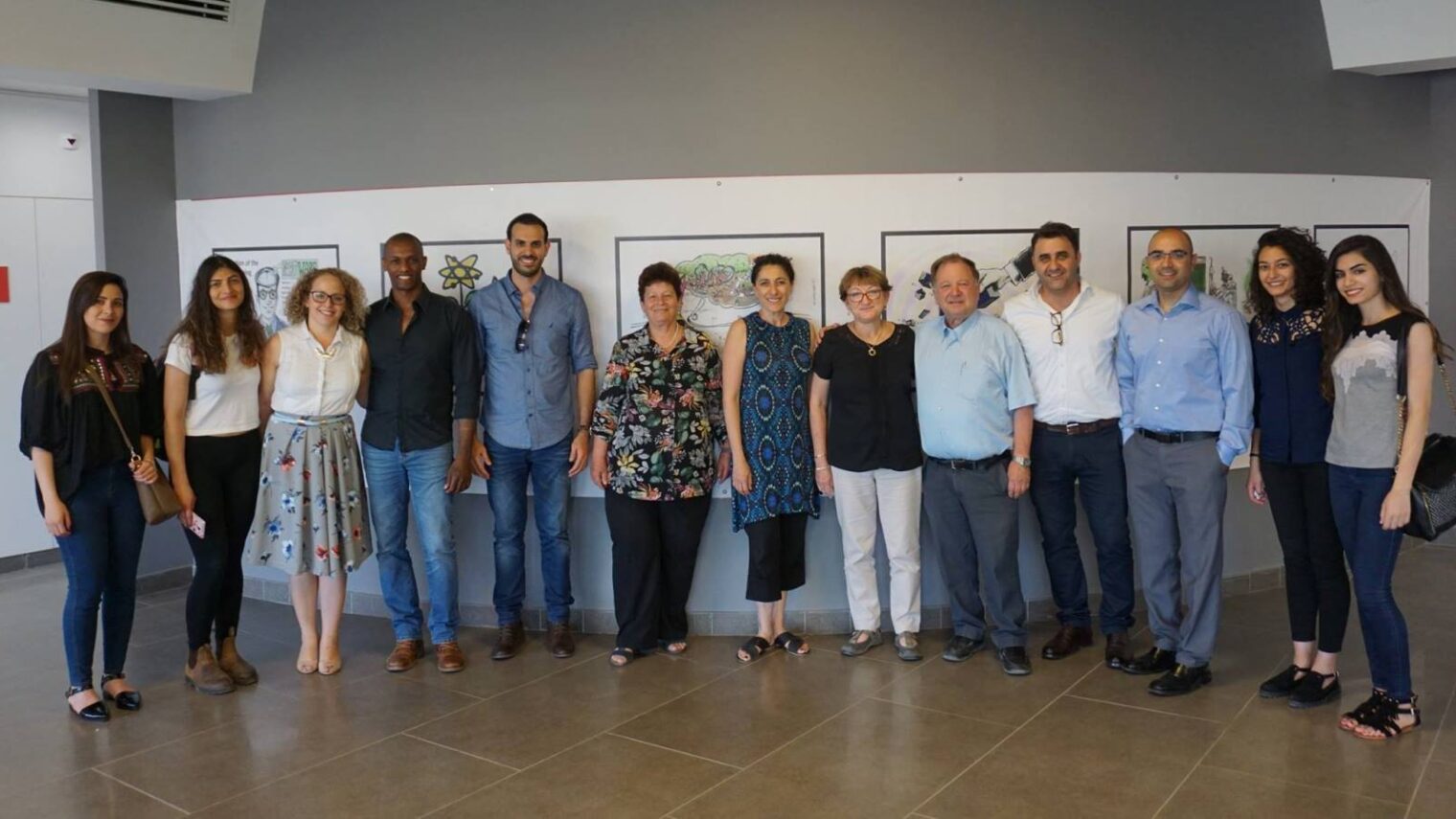Muhammad, an engineering student at Azrieli College in Jerusalem, has an idea for a security application to send laptops into sleep mode upon sensing that the user has left the immediate vicinity. It could be helpful for people working in a public library or coffee shop, or even in highly sensitive military settings.
Arin, a student dentist from the Hebrew University of Jerusalem, has an idea for a smartphone application that optimizes the process of scheduling appointments for both dentists and patients.
Because Muhammad and Arin are from Israel’s Arab sector, however, they were not nurtured in the culture of entrepreneurship and lack easy entrée to the startup nation’s mentors and accelerators.
Wamda (“flash of light” in Arabic) was created for budding entrepreneurs like Muhammad and Arin.
This pre-accelerator for ambitious Arab students from medical and engineering fields is a strategic cooperation between AtoBe startup accelerator at Azrieli College of Engineering together with Shirat Entreprises and the Neshama Fund in Ness Ziona.
Housed at AtoBe, Wamda provides the tools and networking to help integrate participants into the entrepreneurial ecosystem in Jerusalem in particular and in Israel in general.
Muhammad and Arin were two of seven men and five women selected out of many applicants for the first cohort, which is not limited to one academic year. They’re all students at Azrieli or Hebrew University and hail from as close as the capital city or as far away as the Galilee.
Several years before Wamda was founded, three Arab graduate students at the Hebrew University recognized the need for fostering entrepreneurship among some of their most capable and talented peers.
“We saw that there is a gap for Arab students. We felt we lack this entrepreneurial spirit and we understand that entrepreneurship is a pillar of the modern economy and thus, we need an opportunity and an adequate platform, in particular, to work on it,” says cofounder Samah Kheir, now an occupational therapist.
Wamda is born
When venture capitalist and serial entrepreneur Eliezer Manor started his philanthropic Neshama Fund about two years ago, he offered to be a strategic partner to help the three former students put their idea in motion.
Neshama supports Israelis from all sectors – including Arab Muslims, Druze, Christians and Bedouins — needing assistance to study toward a profession, Manor tells ISRAEL21c.
Then the group met Michael Mizrahi, head of AtoBe.
Mizrahi had been concerned that although Azrieli’s student body is 15 percent Arab, few of them applied to the college’s accelerator, started in September 2014.
“We didn’t understand why, because in every other sense they are a full part of the college and get great grades,” he tells ISRAEL21c.

The third round of AtoBe was already underway by the time he connected with the founders, but Mizrahi readily agreed to host Wamda as a parallel program. They regularly have joint meetings.
“We really wanted the Arab group to have its own program and content so it can act as a group and create a social atmosphere. Like any other community they have a fantastic WhatsApp group and it’s very colorful to see the interaction,” says Mizrahi.
Participants come two or three times a month to learn from mentors and guest speakers – including Manor — about everything from the legal aspects of startups to presentation skills to market research to patent procedures. They have access to the college’s high-tech development tools, including 3D printers and sample drug production equipment.
One of Wamda’s founders and managers, Yousef Farraj, completed the prestigious BioDesign Innovation Program at Hebrew University and now is a doctoral candidate in chemistry.
“Most of the students in Wamda have an idea and some have only the spirit,” Farraj tells ISRAEL21c. “We try to show them what tools they need and what programs are available to help them choose an idea, execute a proof of concept and realize their dream in the short or long term.”
Each Wamda participant gets a scholarship partly funded by the Neshama Fund, intended as seed money for acquiring an entrepreneurial toolbox.
“The question always comes up, why aren’t Arabs entrepreneurs?” says Manor. “It’s not genetic; it’s just a question of culture and environment.”
There are a couple of other startup programs in Jerusalem for the Arab sector – Jerusalem Entrepreneurs for Society and Technology (JEST) for adults in East Jerusalem and the MIT-sponsored Middle East Entrepreneurs of Tomorrow (MEET) for teens in Jerusalem and Nazareth.
Wamda fills another gap, says Mizrahi, and is unique in that it is a joint program of two academic institutes.
“We envision that in the future this cooperation will only get stronger and more fruitful,” says Farraj.














